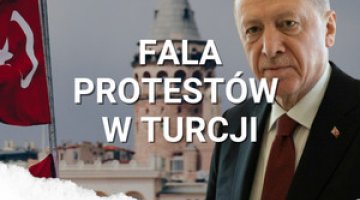Turkey wages (a limited) war on jihadists
On 3 June, Turkey classified Jabhat Al-Nusra, a branch of Al-Qaeda, as a terrorist organisation. This is one of the largest and most influential militant organisations fighting the Assad regime in Syria. In reaction to Turkey’s move intelligence agencies from the US and the EU sent Ankara a list of 5,000 people suspected of participation or of intention to participate in jihad in Syria. The US ambassador has also revealed that Washington and Ankara are strengthening co-operation to bolster Turkey’s capacity to protect its borders.
Over the past three years, Turkey has become the main transit channel and logistic base for militants fighting in Syria. They have benefited from Turkey’s favourable attitude to the rebels, unrestricted travel in Turkey and ease of crossing the border with Syria. US intelligence estimates that around 26,000 jihad militants were fighting in Syria at the beginning of this year, including around 7,000 foreigners. Most of them probably got there via Turkey. The two main terrorist organisations operating in Syria are Al-Nusra and the even more radical Islamic State in Iraq and the Levant (ISIS; also active in Iraq), which Ankara had previously been recognised as a terrorist organisation.
Commentary
- Turkey’s decision marks a change in its policy towards jihadists. Until recently, Ankara had turned a blind eye on their presence in Syria and the frontier regions of Turkey, believing that they would help the moderate opposition overthrow the Assad regime. This policy was also an effect of its unwillingness to provoke a conflict with terrorist organisations against whom it would not have been able to defend itself due to the lack of full control over the 900-kilometre Turkish-Syrian border and the difficulty to tell terrorists from refugees and moderate rebels.
- The change in policy has been influenced by several factors. Firstly, Turkey is concerned about the threat steming from the growing influence of Islamic radicals in Syria and Iraq and about their presence in Turkey. The existence of this threat has been proven by clashes between ISIS militants and the police in central Turkey and Istanbul in March this year, during which policemen and civilians were killed, and by the kidnappings of Turks in Iraq in June this year. Secondly, this change is an effect of the growing conflict between the moderate Free Syrian Army and Al-Nusra. The former is backed by Turkey and the West and the two groups until recently had formed a tactical alliance. Thirdly, this is a response to the growing concern of the EU and the USA about possible terrorist attacks being plotted by militants returning from Syria, and a manifestation of the coordination of activity from the USA, which has recently strengthened its support for the moderate opposition.
- It is quite likely that Ankara’s actions aimed against Islamic terrorists will be restricted primarily to detaining individuals travelling from the EU and the USA who are suspected of being linked to jihad in Syria, and to other forms of intelligence co-operation with the West. In practice, these moves will more seriously affect the interests of ISIS than Al-Nusra, which relies on non-Syrian recruits to a much lesser extent. However, Turkey is rather unlikely to launch a comprehensive offensive against jihadists. This would run the risk of conflict with Al-Qaeda and ISIS, whose members can freely travel to Turkey from Syria, and can operate in its territory and recruit militants from among around one million Syrian refugees.





